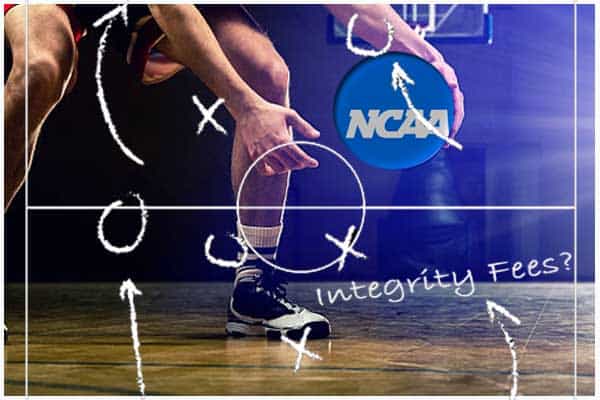Programs within the NCAA are beginning to factor in the looming prospect of legal sports wagering, looking for ways to get some type of compensation.
Back in May, the US Supreme Court repealed the Professional and Amateur Sports Protection Act (PASPA), or the long-standing ban on US sports betting. This allows each state to pass legislation that would allow regulated betting on professional and collegiate sporting events without having to pay a dime out to the leagues.
The NBA and MLB began the trend of lobbying for integrity fees, or royalties paid out to the leagues along with exclusive rights to the data used to determine betting outcomes. College programs in states where sports betting is on the brink of legislation are looking at joining these professional leagues in their revenue-seeking endeavors.
Most states are aversive to the idea of integrity fees because they would be losing money for seemingly no reason. They see the integrity fee prospect as a money-grabbing front to try and get a piece of the betting action.
Some college programs are using the same argument that the MLB and NBA use to justify the integrity fees. These programs see the integrity fees as a means to fund educational programs teaching collegiate athletes about the dangers of sports betting, i.e. match-fixing, point shaving, etc.
“As the director of athletics at West Virginia University, my job is to protect the integrity of this department. The last thing I want is for one of my athletes to be involved in any type of issue with sports betting,” said WVU AD Shane Lyons.
West Virginia, in particular, could see the issue of integrity fees revisited. While the state was able to pass legislation that didn’t include provisions for the sports leagues, their governor is urging lawmakers to reconsider the position, hinting at the possibility of another session being opened to amend the current sports gambling bill to include integrity fees.
West Virginia has the advantage of not being pressured by any professional sports teams in the state. However, WVU is rooted in the community and has political connections with lawmakers.
The NCAA has exerted their influence on states regarding sports betting in the past, so it is not unfathomable to think it will happen again. Oregon, a state omitted from PASPA, was pressured into ceasing their legal sports betting to appease the NCAA’s agenda.
While multiple individual schools like WVU, Ole Miss and Marshall are a few examples of programs that have openly expressed their desire for integrity fees. People like Anthony Cabot, experienced gambling industry attorney, believe the NCAA should tackle this issue head-on instead of individual schools.
“We really do need a national system to protect the integrity of games, and how much a single university could contribute to that is somewhat limited.”

